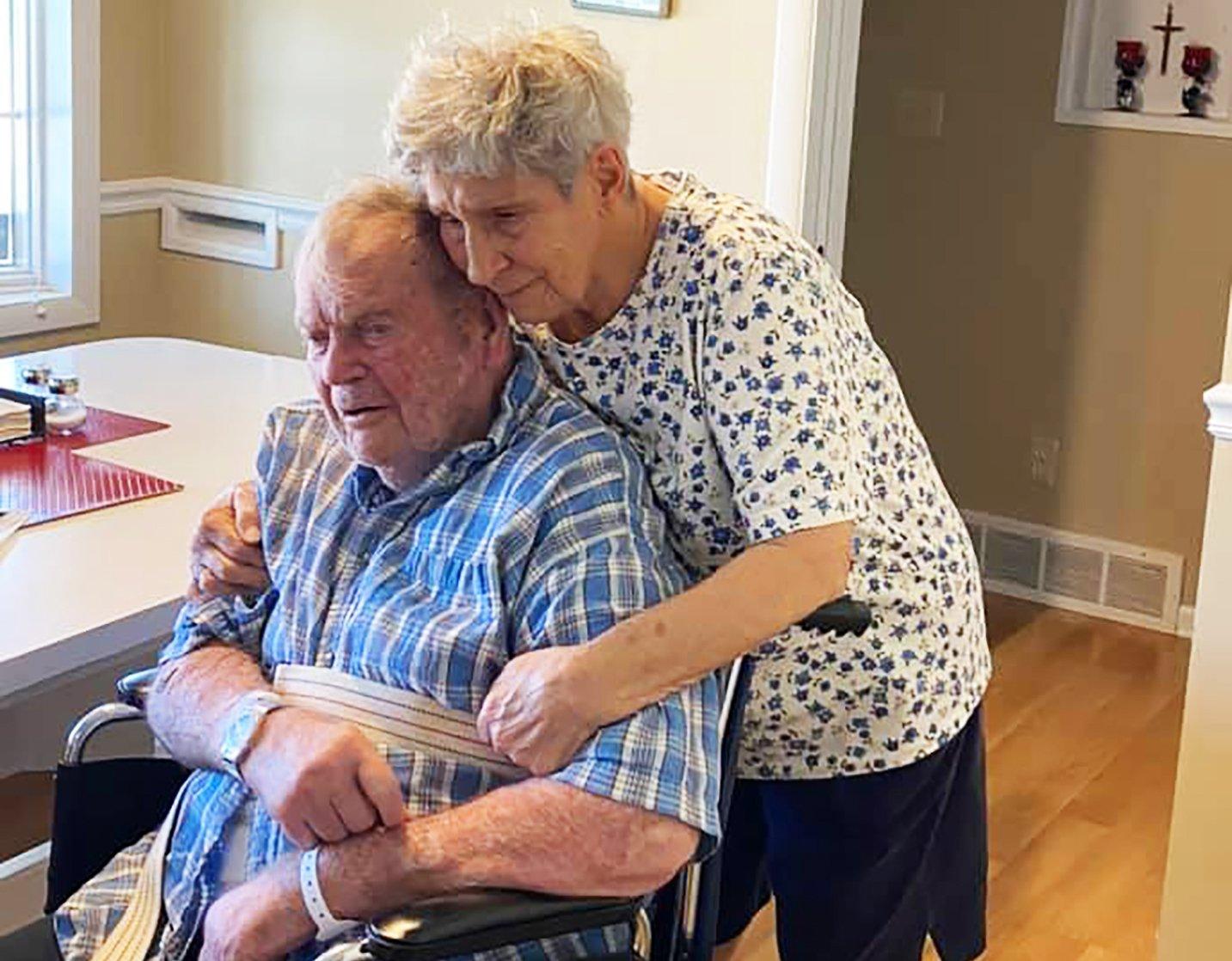HAYS, Kansas — In Ellis County, 91-year-old Ronald Thyfault was the first person to die of COVID-19, on July 15.
His daughter, Amy Normandin, said the funeral home was instructed to cremate those who have died from the disease caused by the novel coronavirus. If the deceased wasn’t cremated, the body would not be permitted into the church during the funeral.
“I thought of the hearse outside of church with him in the casket while we were at Mass,” she said. “It didn’t seem right. As much as I didn’t want to, we had him cremated.”
Several family members also contracted COVID-19, so the funeral was delayed for three weeks.
With nine children, 31 grandchildren and 36 great-grandchildren, family gatherings often draw 100 members of immediate families.
“A hard part was so many people were afraid to come,” Normandin said. “My dad came from a large family. We have family all over the place who would normally travel, but so many people were afraid to travel. We had family from out of state who decided it wasn’t wise to travel. So many people missed the opportunity out of fear.”
Funerals often offer an element of closure, she said, noting that family members who gather support each other, say goodbyes and share memories.
The rules surrounding COVID-19 patients and funerals have continued to evolve during the pandemic. Normandin said when her father was hospitalized early in July, family was not permitted to visit him.
Virginia Thyfault said her husband often repeated, “Thy will be done,” throughout his life. She said the last weeks during her husband’s illness were difficult especially because they had not been apart for more than two hours in the last five years, and then when he went into the hospital for two days, she couldn’t be with him.
Shortly before her husband fell ill, the couple celebrated their 69th wedding anniversary. One of the mainstays of their marriage was prayer.
“We said the rosary probably three times a day, every day,” Thyfault told The Register, diocesan newspaper of Salina. “We would say it in the morning, when the noon bell rang, and most times at 3 o’clock, we would say it again. We both have a very strong faith.”
With the family in quarantine during Ronald’s final days, Catholic traditions were important to the family. Yet because of their positive COVID-19 status, it was difficult to maneuver.
“It was a challenge for Dad to receive the last rites,” Normandin said. “There was a concern about a priest visiting in the home without proper PPE (personal protective equipment) and putting himself at risk of quarantine and then would limit his ability to serve the rest of the parish, which we understood.”
She said she and her sister made a lot of phone calls and were able to locate all of the PPE material required.
“We are grateful one of the priests came to the home and administered the sacrament later that evening. Dad was extremely grateful, and his receiving the anointing put him and all of us in a more peaceful state of mind as we entered that last night.”
In the days and weeks since her husband’s death, the faith they shared has helped anchor Thyfault.
“If it wasn’t for my faith, it would be hard to cope,” Thyfault said. “I miss Ron a lot. I pray the rosary many times a day, and when I do, I feel close to him.”
Bonar is editor of The Register, newspaper of the Diocese of Salina.












